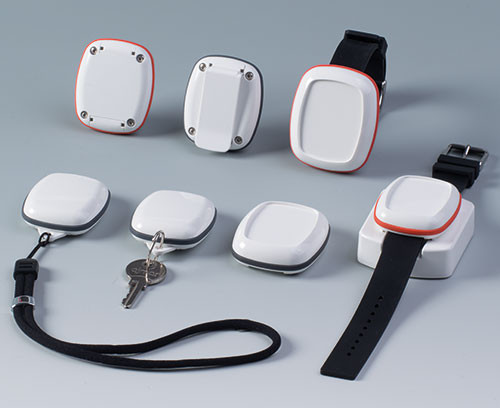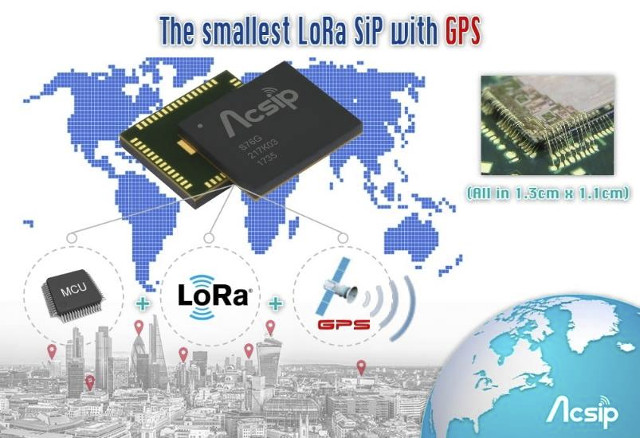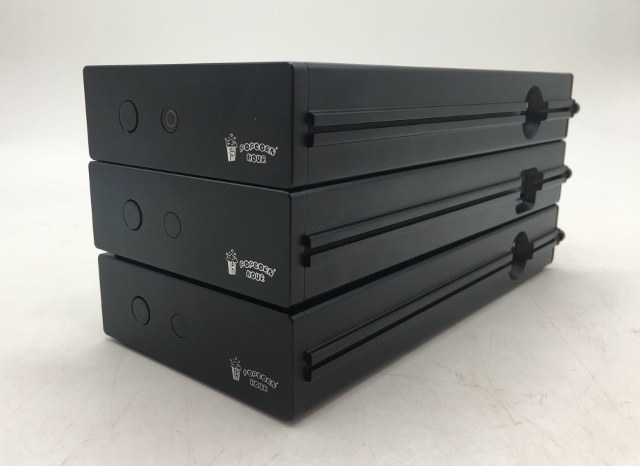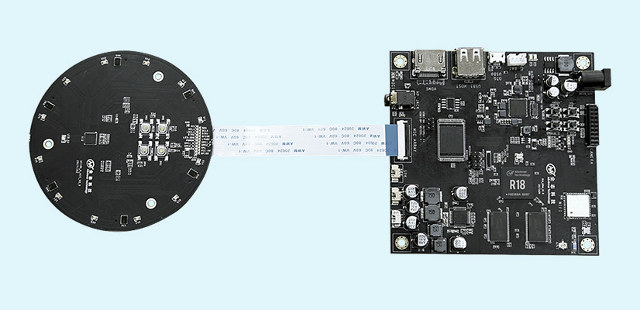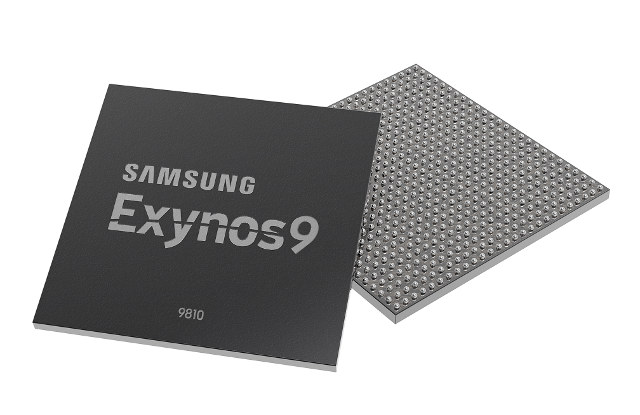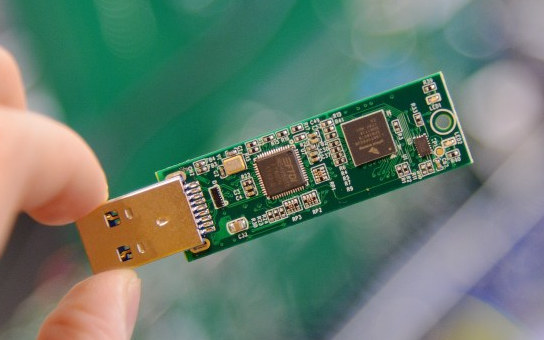You may have worked on a battery powered wearable or IoT projects, and the hardware and software are mostly ready, but you’ve yet to find a good way to package it to make it easily wearable, and protect it from the elements. OKW body case could be one way, as it can be used around your arm like a wrist watch, as a key ring attachment, clipped to your trousers or T-shirt, carried around your neck. The case has been moulded in ASA plastic with a high UV protection, includes a TPV sealing ring to ensure IP65/IP67 water & dust proofness, and is assembled with four stainless stell screws using a Torx drive. The company provides two sizes (Large: 55 x 46 x 17 mm, or Medium: 50 x 41 x 16 mm) and claims easy operation with the help of push buttons or touchscreens, although I’d assume water / dust resistance […]
AcSiP S76G/S78G SiPs Integrate LoRa, GPS, and MCU into a Single 1.3×1.1 cm Package
LoRa has been combined with GPS in several products such as Rakwireless RAK811 LoRa tracker board, or Dragino LoRa/GPS HAT board among others, with all designed for far based on a LoRa module, plus a GPS module. LoRa GPS tracker will soon even smaller as AcSiP has developed S76G and S78G systems-in-package (SiP) that combine LoRa, GPS and an MCU into a single 1.1 x 1.3cm package. The two new modules are not listed on the company’s IoT-LoRa products page yet, but they appear to be an evolution of their S76S / S78S LoRa + MCU SiP released in 2016, so the new modules should have the following features: MCU – STMicro STM32L073x Arm Cortex M0+ MCU with up to 192 KB of Flash memory and 20 KB of RAM LoRa AcSiP S76G – Semtech SX1276 supporting global 868 MHz or 915 MHz ISM-Bands. AcSiP S78G – Semtech SX1278 supporting […]
Popcorn Hour Transformer Media Computer / NAS Launched for $95.90 and Up
Last month, we wrote about Cloud Media’s Popcorn Hour Transformer, a platform based on Rockchip RK3328 processor that could be used a 2.5″ drive NAS, and/or a 4K HDR TV box, and looked like an interested alternative to ODROID HC1 NAS system. The company has now officially launch the device, and is taking orders for $95.90 or $115.90 for respectively the 2GB RAM/16GB flash, or 4GB/32GB versions. Popcorn Hour Transformer specifications: SoC – Rockchip RK3328 quad core Cortex A53 processor with Mali-450MP GPU System Memory – 2GB or 4GB LPDDR3 Storage micro SD slot 16 or 32GB eMMC flash (removable and upgradeable) 128 Mbit SPI NOR flash SATA interface via USB 3.0 to SATA bridge chipset for 2.5″ HDD/SSD Network Connectivity – Gigabit Ethernet Video Output – HDMI 2.0a up to 4K 60Hz with HDR (HDR10/HLG) support Audio Output – Via HDMI, and 3.5mm audio jack (analog stereo or optical […]
$129 Allwinner R18 based 3-Mic Far Field Amazon AVS Development Kit in the Works
Several companies are already offering development kits for Amazon AVS (Alexa Voice Service), but as we’ve seen in the past, those are rather expensive with far-field kits such starting at $349 with kits such as Synaptics AudioSmart 4-Mic Development Kit, or Intel Speech Enabling Developer Kit, and hands-free kits being barely cheaper at $299 and up. But there will soon be a cheaper solution, as Allwinner and SinoVoIP (aka Banana Pi) are working on “SoC-Only 3-Mic Far-Field Dev Kit for Amazon AVS” that includes 3 microphones, and works without special DSP, relying instead on Allwinner R18 processor’s audio codec and capabilities. Allwinner SoC-Only 3-Mic Far-Field Dev Kit for Amazon AVS (aka R18-AVS-EVK) specifications: SoC – Allwinner R18 quad-core Cortex-A53 processor @ 1.15GHz with Mali400MP2 GPU System Memory – 1GB DDR3 Storage – 8GB eMMC flash Video Output – HDMI Audio – 6x Microphones, 2x AEC, AUX and headphone output; GMEMS voice […]
OpenWrt & LEDE Projects Merge Announced
The LEDE project was created in 2016, as a fork of OpenWrt because of a split among developers, so we had OpenWrt and LEDE projects running side-by-side for nearly two years now. However, there were also talks of reunification in 2017 during an Embedded Linux Conference sessions entitled “OpenWrt/LEDE: When Two become One”. The good news is that OpenWrt and LEDE projects (re-)unification is now official, and the project will be known as OpenWrt. Developers will follow the LEDE project rules, merged code is now hosted @ https://git.openwrt.org/, and mirrored on Github (https://github.com/openwrt/openwrt) using the code base of the former LEDE project together with OpenWrt specific patches that meets LEDE’s code quality requirements. The original OpenWrt codebase has been archived on Github. The OpenWrt CC 15.05 release series will still receive some security and bug fixes, but older version will not be supported anymore. The LEDE 17.01 release will still get […]
Samsung Announces Exynos 9810 Octa-core Processor Optimized for AI and Multimedia Applications
Samsung Electronics has just announced the launch of Exynos 9 Series 9810 (Exynos 9810) manufactured with Samsung’s 10-nm FinFET process, featuring an eight core processor clocked up to 2.9 GHz, a gigabit (1.2 Gbps) LTE modem and deep learning-enhanced image processing. Single core performance is aud to be improved by two-fold, while multi-core performance gets a 40% improvement compared to the previous generation chip, which should be Exynos 8895. ARM Mali-G72 GPU is said to bring more realistic graphics along with 20% more performance. Samsung Exynos 9810 specifications with extra cache and memory info from Anandtech: CPU Quad core custom Exynos M3 @ up to 2.9GHz optimized for performance; 512KB L2 cache per core Quad-core Arm Cortex-A55 @ up to 1.9GHz optimized for efficiency; 128KB L2 cache per core GPU – Arm Mali-G72MP18 Memory – LPDDR4x (4x 16-bit @ 1794 MHz) Storage – UFS 2.1, SD 3.0 Display – Up […]
Companies Address Concerns related to Speculative Execution Exploits: Meltdown and Spectre
Yesterday, news surfaced about a “bug” in Intel processors that could be fixed at the operating system level at the cost of a decrease in performance for some tasks, from a typical, and barely noticeable 5% hit, to a more consequent 30% hit for some specific tasks, and as we discussed yesterday I/O intensive tasks are the most impacted by the changes. While Intel (and Arm) are impacted, AMD claims not to be, and the issue was reported by major news outlets and likely impacting the stock price of the companies with Intel stock losing 3.39%, and AMD stock gaining 5.19%, so obviously every company felt the need to answer, starting with Intel’s response to security research findings: Recent reports that these exploits are caused by a “bug” or a “flaw” and are unique to Intel products are incorrect. Based on the analysis to date, many types of computing devices […]
Laceli AI Compute Stick is a More Powerful & Efficient Alternative to Intel/Movidius Neural Compute Stick
Intel’s Movidius Neural Compute Stick is a low power deep learning inference kit and “self-contained” artificial intelligence (A.I.) accelerator that connects to the USB port of computers or development boards like Raspberry Pi 3, delivering three times more performance than a solution accelerated with VideoCore IV GPU. So far it was the only A.I USB stick solution that I heard of, but Gyrfalcon Technology , a US startup funded at the beginning of last year, has developed its own “artificial intelligence processor” with Lightspeeur 2801S, as well as a neural USB compute stick featuring the solution: Laceli AI Compute Stick. The company claims Laceli AI Compute Stick runs at 2.8 TOPS (Trillion operation per second) performance within 0.3 Watt of power, which is 90 times more efficient than the Movidius USB Stick that can deliver 100 GFLOPS (0.1 TOPS) within 1 Watt of power. Information about the processor and stick […]


